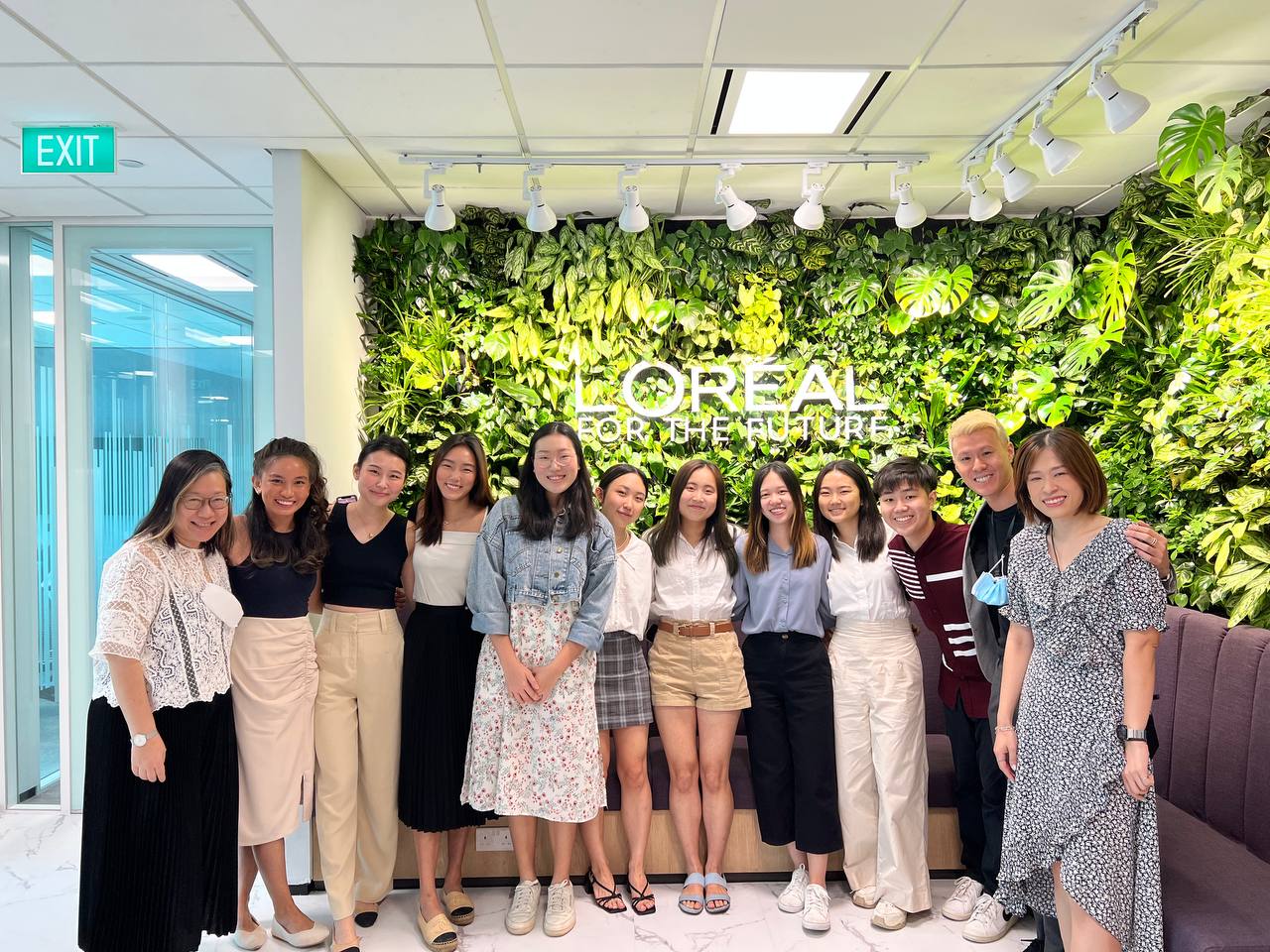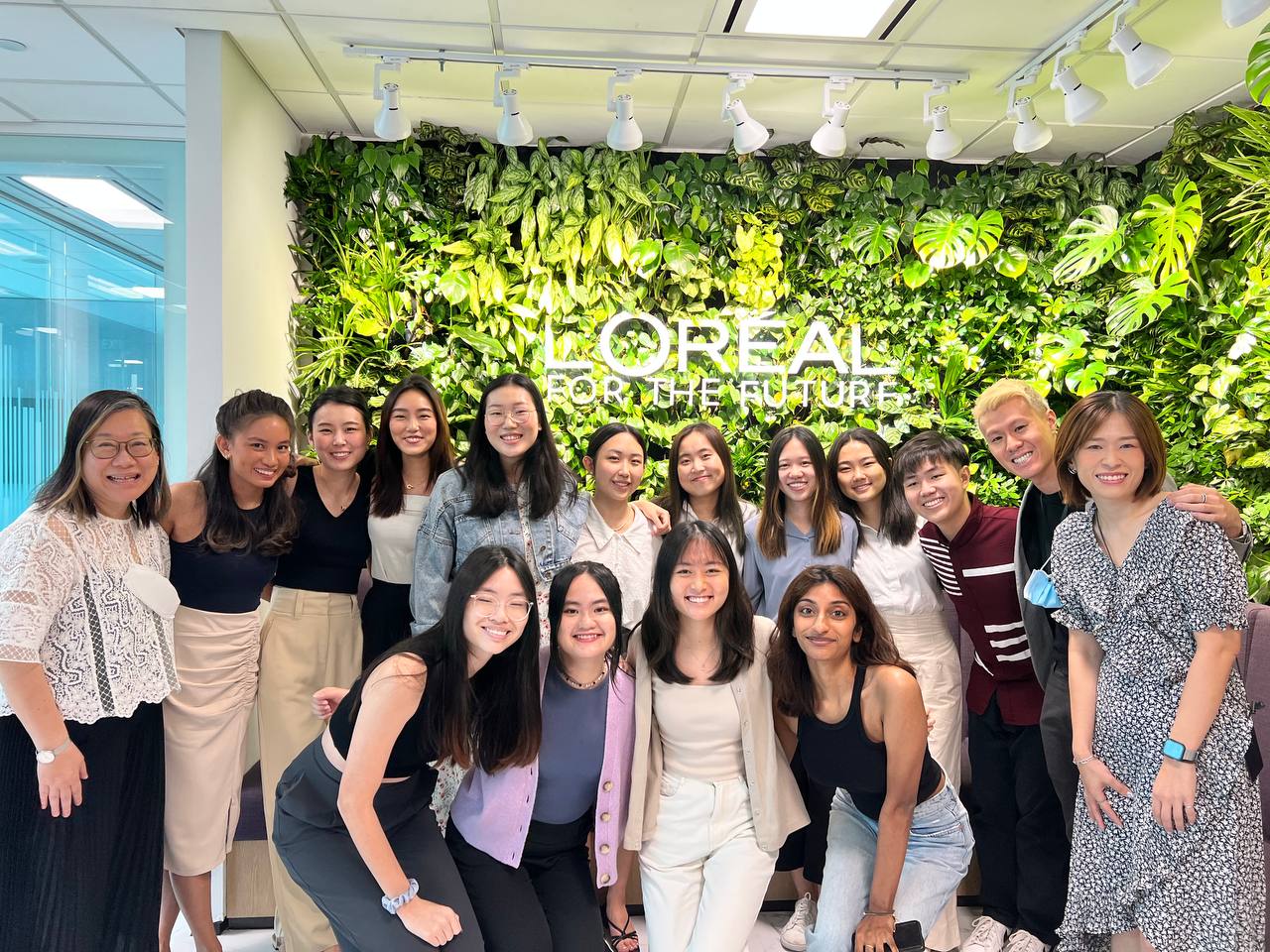This past semester, the student leaders of the Marketing Interactive (MINT) @ NUS Business School club strategically seized upon their advisor, Associate Professor of Marketing Ang Swee Hoon’s alumni connections in L’Oreal, to initiate a student-led case challenge. This competition opened the way for aspiring marketers in the undergraduate community to pitch their ideas and business solutions to L’Oreal’s management, earning them valuable experience and exposure.

2022 MINT @ NUS Business School X L’Oreal Marketing Case Competition

"The participants demonstrated a deep understanding of our brand and the case, presenting innovative solutions that can be quickly implemented—through identifying the right challenges and driven by clear consumer insights. It was my pleasure to work with Yi Xuan, Jasmine and Raelene—they were responsible, proactive and the entire partnership journey was seamless!"
As the competition dust settled, BIZBeat sat down with a satisfied committee chairperson, Jiang Yi Xuan, to delve into her project journey, from ideation to execution.

Q: What were the most memorable moments for you as the chair of the organising committee?
Seeing my months of planning come to fruition during the kickoff meeting, and an encouraging sign-up of 132 participants! This case competition holds a special place in my heart. Not only was it the first competition that I organised, but it was also in a field that I’m passionate about—beauty. Needless to say, partnering with L’Oreal was a key factor that drew me to MINT @ NUS Business School.
Meeting with the room of eager participants was another heartwarming memory. Instead of feeling fearful about sharing with a sizable audience, I felt excitement and pride that I had the rare opportunity to facilitate this experience for them.
Q: What were some challenges you encountered along the way, and how did you overcome them?
Thanks to the strong support from my MINT @ NUS Business School Co-President Raelene and Head of Business Development Jasmine, the planning process was smooth. It also helped that I had previous experience planning events, so I knew what to expect.
That said, we did hit a few bumps. Our most intense period was the final build-up to the kickoff meeting and the end of Round 1 of the competition. That was when administrative and logistical work became more demanding, with the registrations, mass communications, and managing and evaluating submissions. In anticipation of this crunch, I prepared as far as possible and used available tools to manage my workload. I have learnt from experience that good planning is critical in managing stress and workload. Hence, the challenges were not as overwhelming.
"It was a refreshing experience to organise a case competition. I witnessed the amount of time and effort that had to be dedicated to ensuring that everything went smoothly. The most memorable moment for me was, by far, the finale. It was wonderful to see the top three cases come alive in presentations and to witness the amount of passion the teams demonstrated."
Q: What have you learned from your time at MINT and organising these marketing case competitions?
I have developed greater confidence in addressing a crowd and articulating my opinions in a professional setting. Having to work relatively independently when collaborating with Maybelline New York also fostered a strong sense of ownership in the way I work. In retrospect, if not for this experience, I would not be able to carry myself with the poise and professionalism I do today.
On the whole, I think that MINT @ NUS Business School not only instils students with marketing skills but also develops our critical thinking skills. The club provides an environment for working with the industry where we can step out of our comfort zones. At the same time, within the nurturing grounds of a student club, we feel safe to make mistakes and develop ourselves further.
Q: In your opinion, what makes a winning case competition team?
Amongst the highly evaluated teams, we see common themes, including a clear and analytical thought process, with significance placed on implications and the “so what?”. Strong links between the market landscape, problems identified and recommended solutions are also key.
The analysis process should be very tight so that viewers can understand and are convinced of the logical flow of the team’s arguments. Finally, it is the confidence in your solution, expressed through posture, tone of voice and eye contact, that really makes a team shine amongst the rest.


